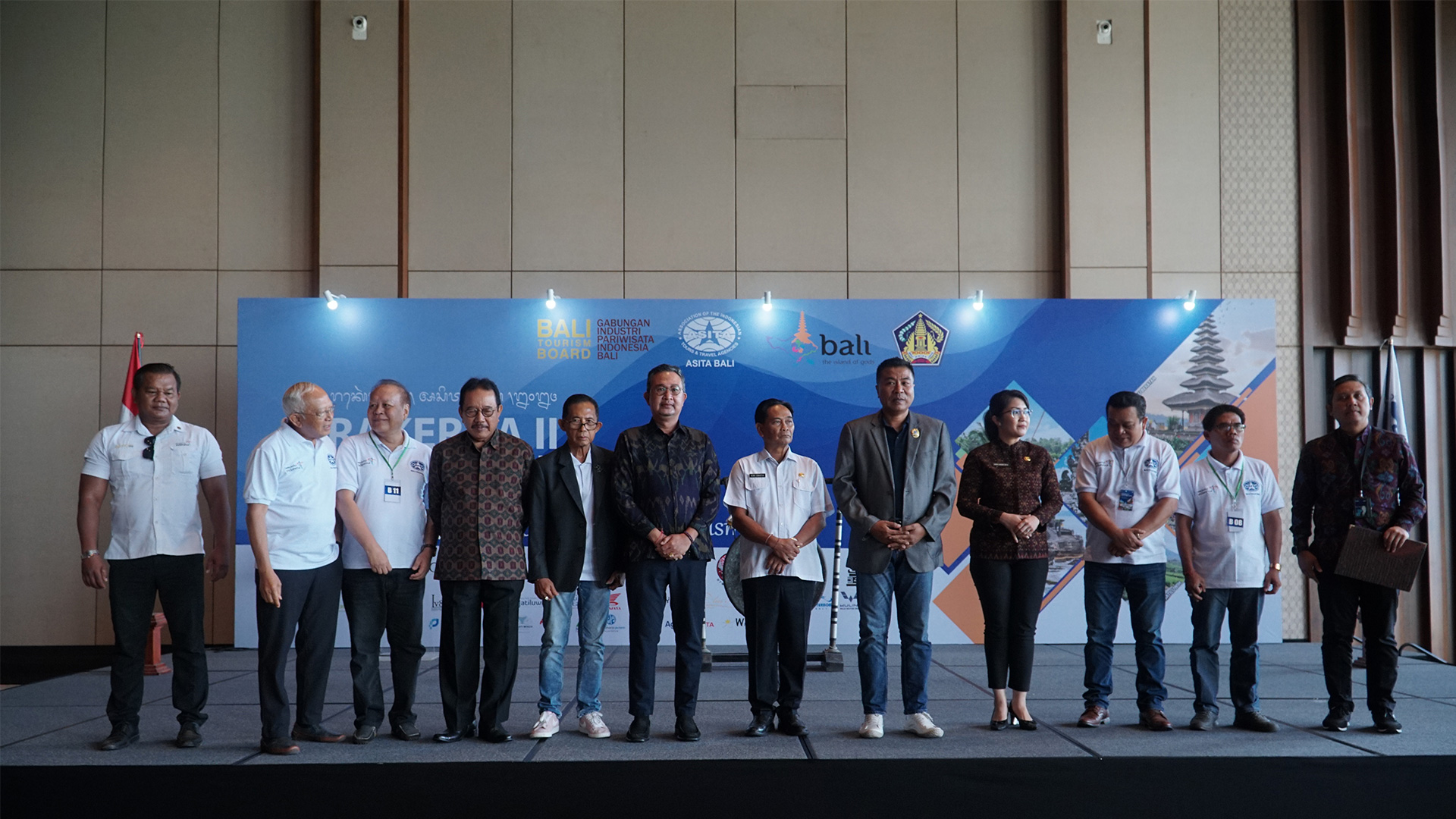Bali, Indonesia – The Association of Indonesian Tours and Travel Agencies (ASITA) Bali held its 2024 Regional Work Meeting (Rapat Kerja Daerah, or RAKERDA) II, under the theme "Leading The Way To Sustainable Tourism." The event, which took place in the heart of Bali, brought together key stakeholders from the tourism industry, government representatives, and environmental advocates to discuss and strategize the future of tourism on the island. With sustainability at the forefront, the meeting emphasized the need for responsible practices that ensure Bali remains a thriving and beautiful destination for generations to come.
1. The Theme: "Leading The Way To Sustainable Tourism"
The chosen theme reflects ASITA Bali's commitment to driving the tourism industry towards more sustainable and environmentally conscious practices. As Bali continues to recover from the impacts of the COVID-19 pandemic and faces the ongoing challenges of environmental degradation, ASITA Bali recognizes the critical importance of sustainability in ensuring the island's long-term economic and ecological health.
The theme underscores the association's leadership role in promoting sustainable tourism practices, encouraging its members and the broader industry to adopt green initiatives, protect natural resources, and engage in activities that benefit both local communities and the environment.
2. Key Objectives of RAKERDA II
RAKERDA II focused on several key objectives that are vital to achieving sustainable tourism in Bali:
- Sustainable Tourism Guidelines: Developing comprehensive guidelines and best practices for ASITA members to follow, ensuring that tourism activities are conducted in a manner that minimizes environmental impact and promotes the preservation of Bali's natural and cultural heritage.
- Strengthening Partnerships: Building stronger collaborations between tour operators, local communities, government bodies, and environmental organizations to create a unified approach to sustainable tourism.
- Innovative Tourism Solutions: Encouraging the adoption of innovative and eco-friendly solutions in tour and travel operations, such as the use of renewable energy, waste reduction initiatives, and the promotion of eco-tourism.
3. Discussion Highlights
Throughout the meeting, various panels and discussions were held, focusing on the following key areas:
- Environmental Stewardship: Experts and industry leaders discussed the urgent need to protect Bali’s natural landscapes, including its beaches, coral reefs, and forests. Emphasis was placed on reducing the tourism industry's carbon footprint, managing waste effectively, and preserving biodiversity.
- Community Engagement: The importance of involving local communities in tourism planning and decision-making processes was a central theme. Discussions highlighted the need to empower local residents through education, job creation, and support for community-based tourism initiatives.
- Economic Resilience: Participants explored strategies to build economic resilience in Bali's tourism sector, ensuring that it can withstand future challenges while continuing to provide livelihoods for thousands of Balinese families. This included discussions on diversifying tourism offerings and promoting year-round tourism to reduce seasonal fluctuations.
4. Challenges and Opportunities
RAKERDA II acknowledged the challenges that come with shifting towards sustainable tourism, including the need for significant investment in green infrastructure, changing long-established practices, and educating both industry players and tourists about the importance of sustainability.
However, the meeting also highlighted numerous opportunities, such as Bali’s potential to become a leading destination for eco-tourism, the growing global demand for sustainable travel experiences, and the possibility of positioning Bali as a model for other tourism destinations worldwide.
5. Future Plans and Initiatives
Several strategic initiatives were outlined during the meeting, including:
- Green Certification Programs: ASITA Bali plans to introduce certification programs for tour operators and travel agencies that meet specific sustainability criteria. These certifications will serve as a benchmark for quality and environmental responsibility.
- Sustainable Tourism Campaigns: A series of campaigns will be launched to raise awareness among tourists and industry stakeholders about the importance of sustainable tourism. These campaigns will promote responsible travel behavior, such as reducing plastic use and respecting local cultures and traditions.
- Educational Workshops and Training: ASITA Bali will organize workshops and training sessions for its members to equip them with the knowledge and skills needed to implement sustainable practices in their operations. These sessions will cover topics such as eco-friendly tour planning, waste management, and community engagement.
6. Conclusion
The ASITA Bali 2024 RAKERDA II was a pivotal event that set the course for a more sustainable future for Bali’s tourism industry. By embracing the theme "Leading The Way To Sustainable Tourism," ASITA Bali is taking a proactive role in ensuring that the island remains a world-renowned destination that balances economic growth with environmental and social responsibility.
As Bali continues to attract millions of visitors each year, the commitments and strategies outlined during this meeting will play a crucial role in preserving the island's unique beauty and cultural heritage, ensuring that it can be enjoyed by future generations. ASITA Bali’s leadership in this endeavor is a testament to the industry’s dedication to sustainable and responsible tourism practices.




